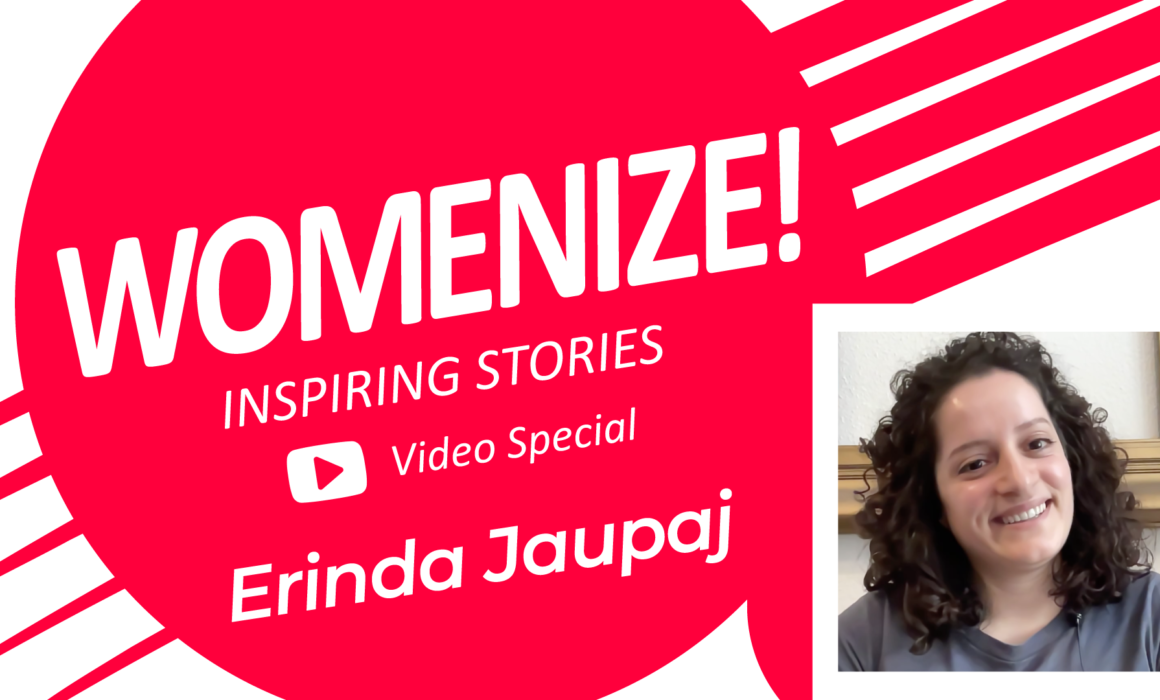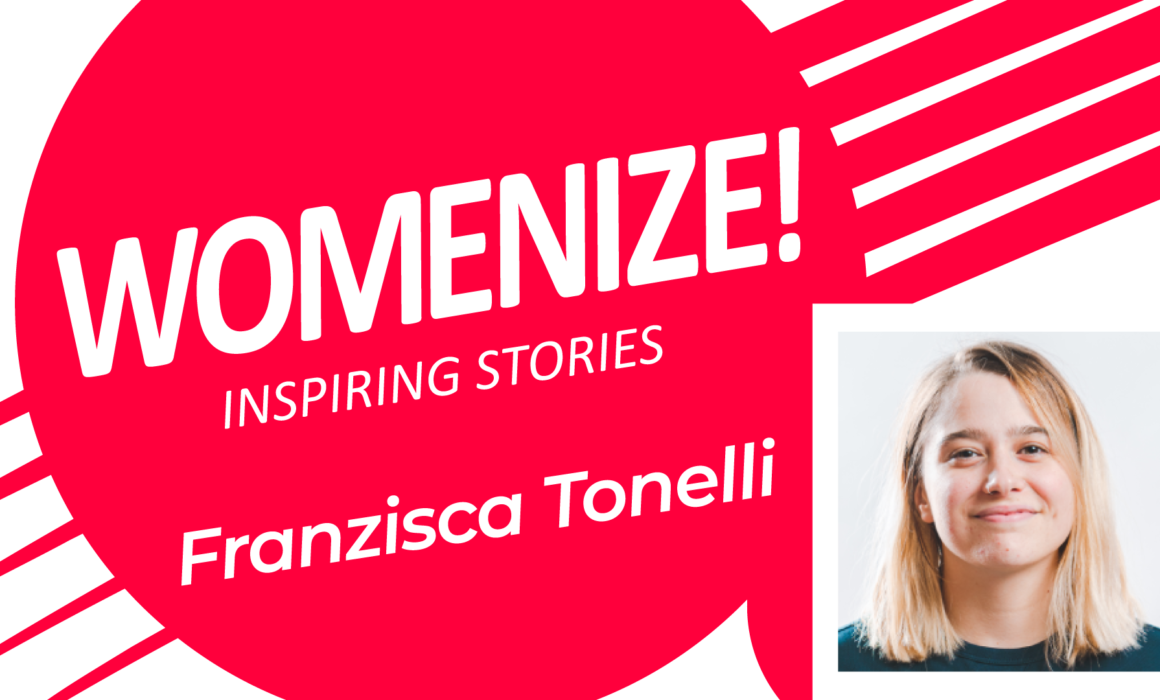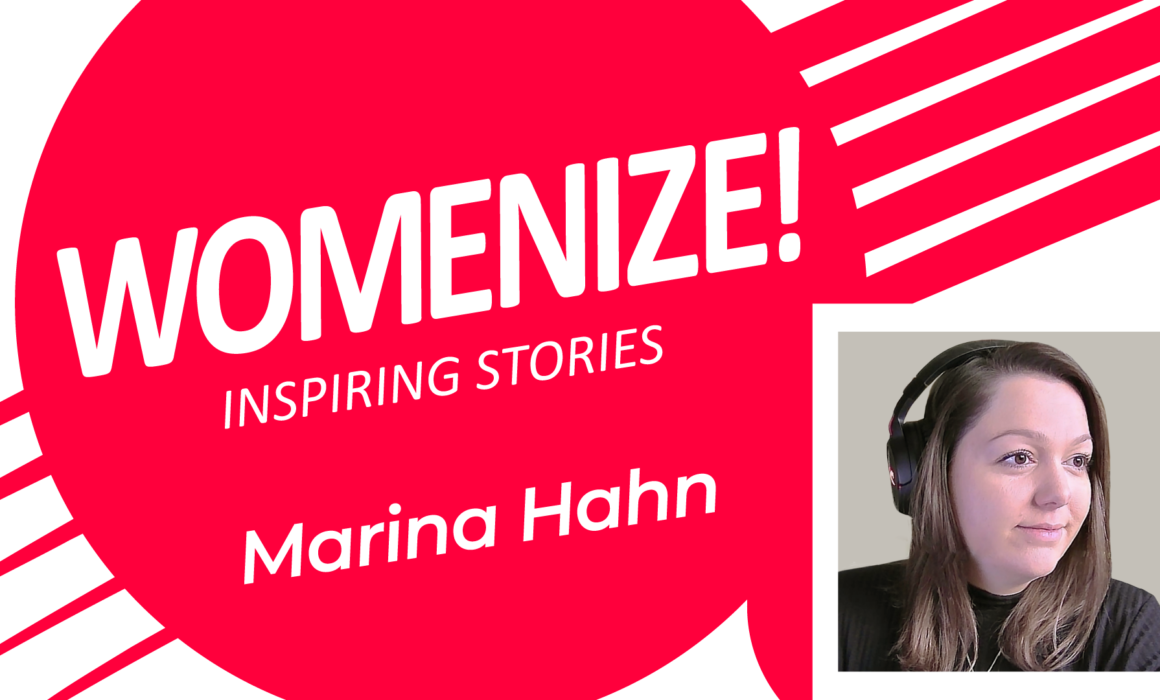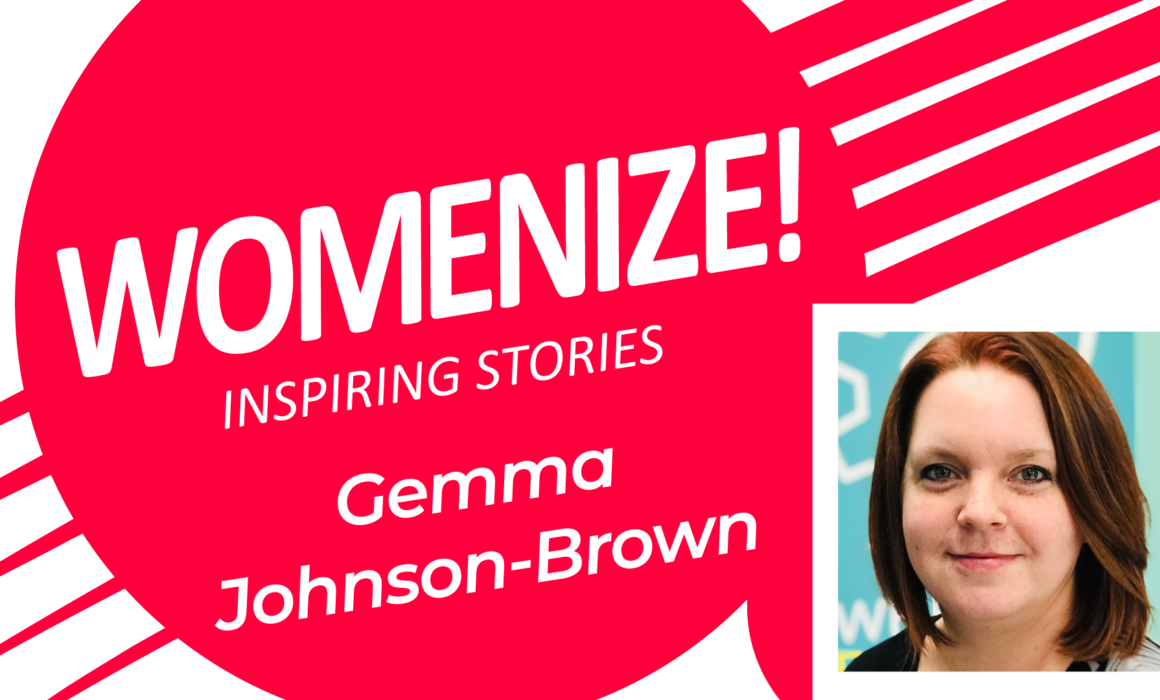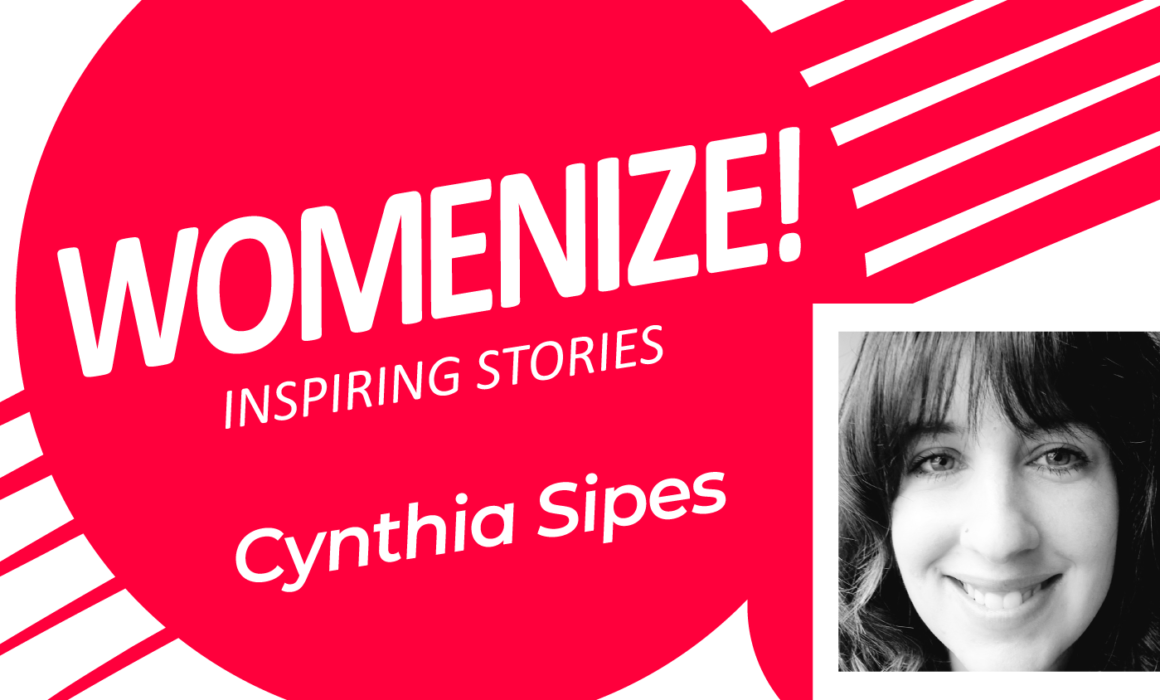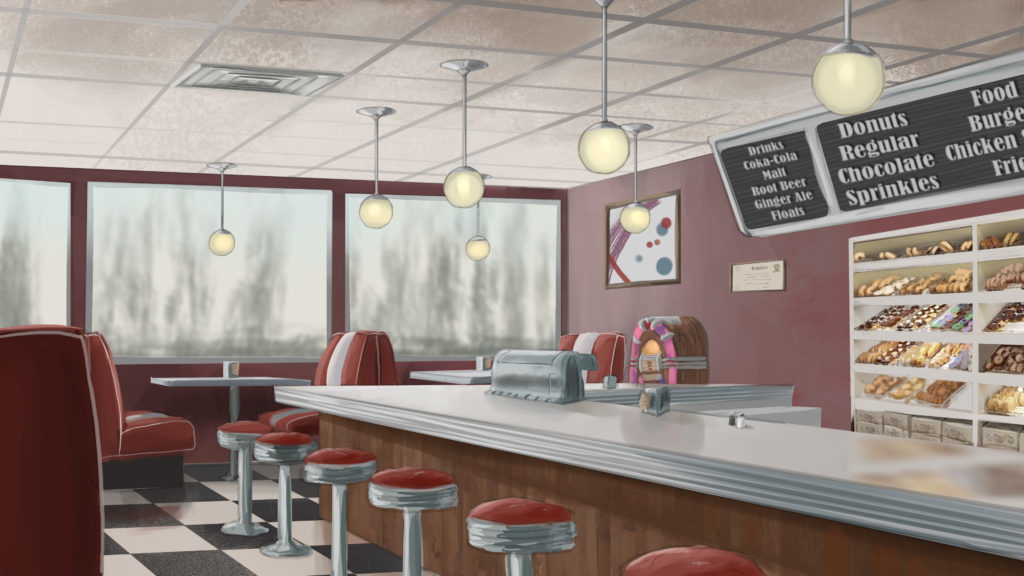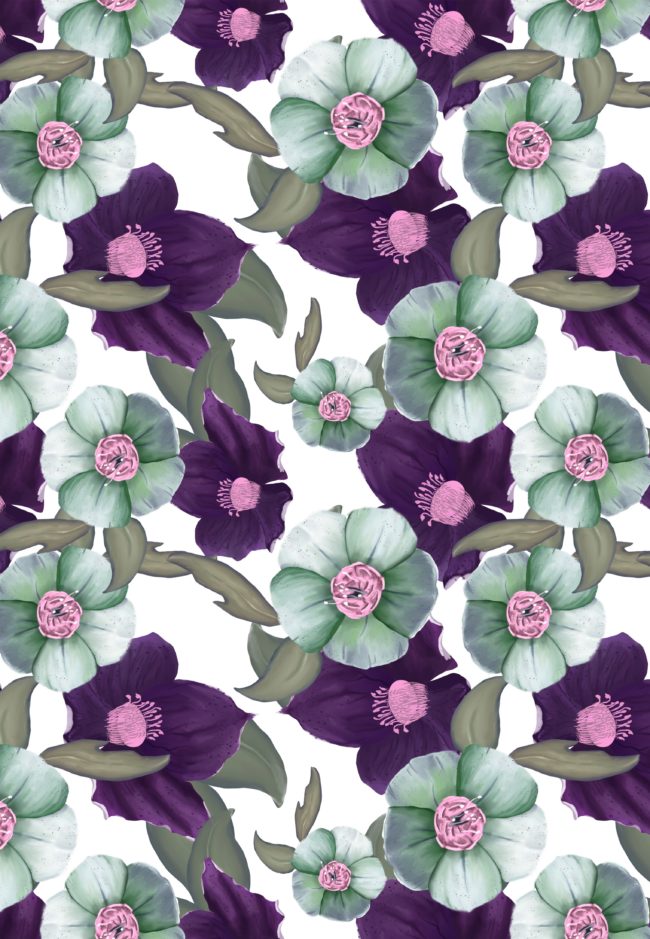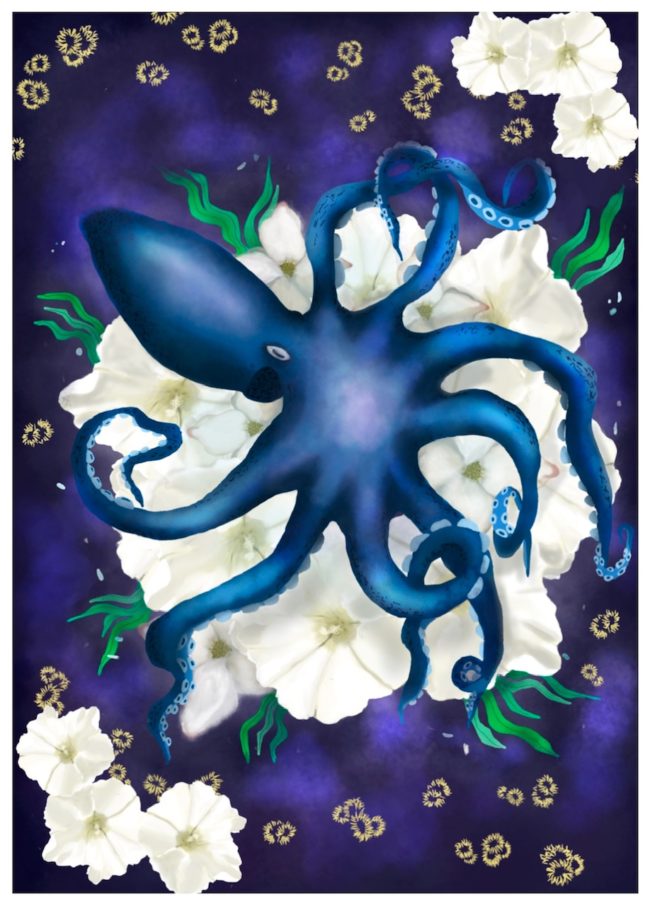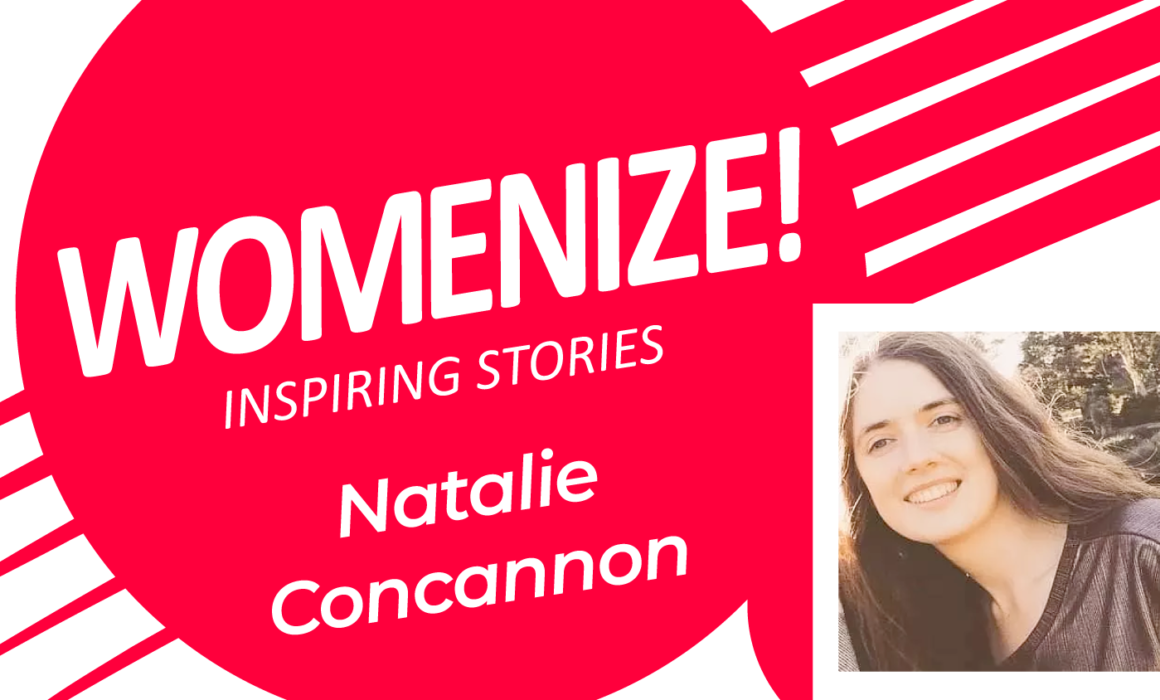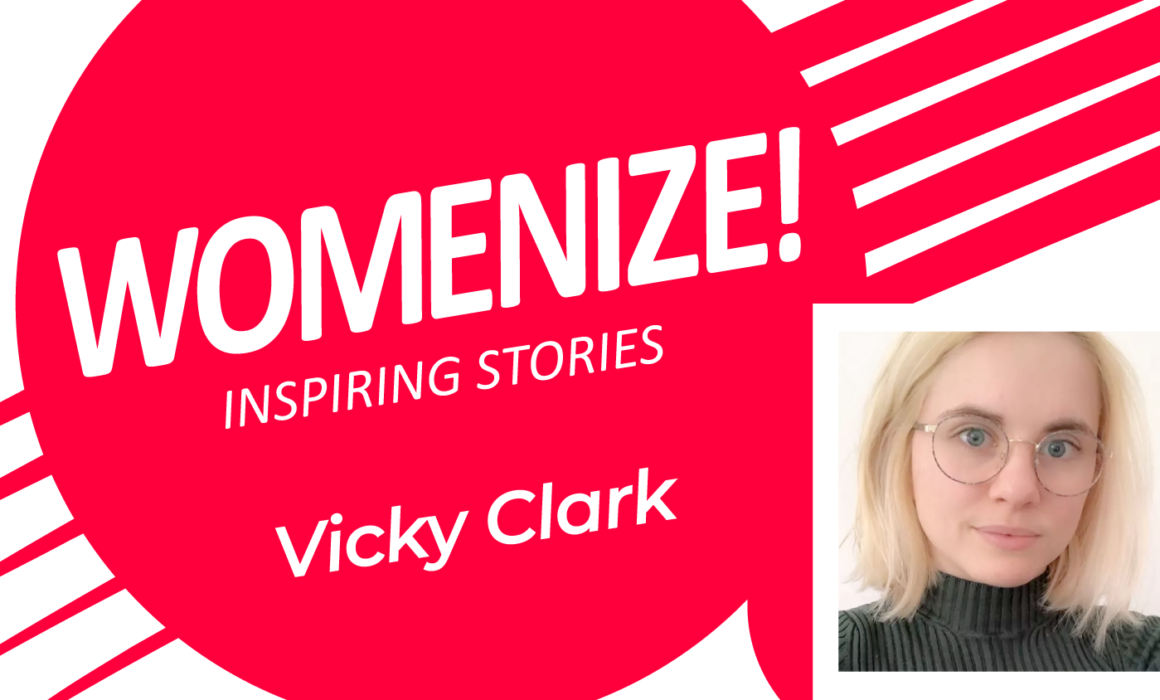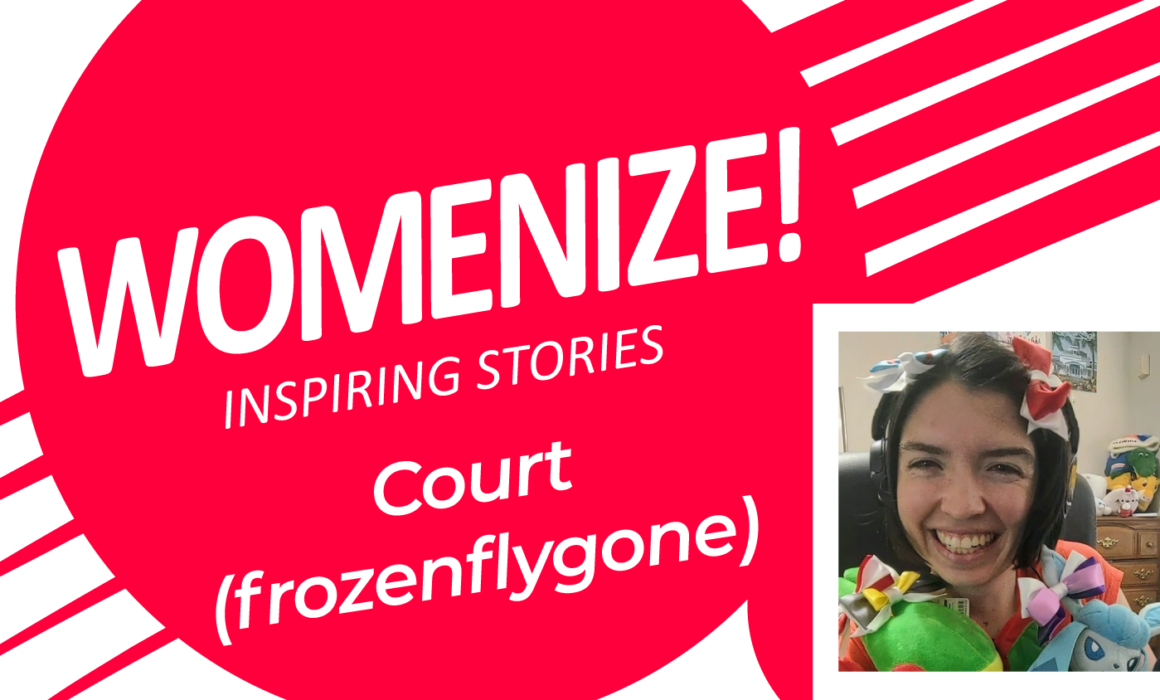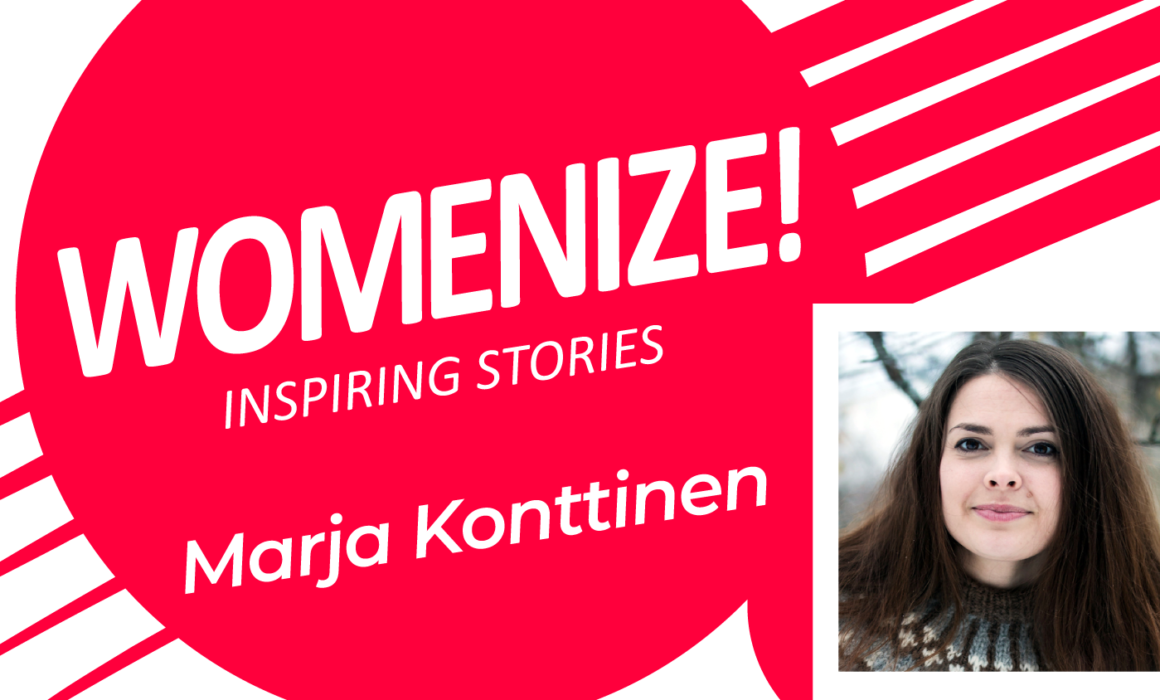Franzisca Tonelli – Womenize! – Inspiring Stories
Womenize! – Inspiring Stories is our weekly series featuring inspirational women from games and tech. For this edition we talked to Franzisca Tonelli, Assistant Producer & Unity VR Developer at BigRock Institute of Magic Technologies. BigRock is teaching new artists techniques for creating 3D animations, digital illustrations, visual effects, as well as music for film, TV, and video games. Franzisca speaks about the power of spreadsheets and teamwork. Read more about her in this interview:
Hi Franzisca! What do you love most about VR game productions?
Production has been with me for as long as I can remember. Tracking tasks and making sure everything is on the streamline makes me feel as if I am one with the force. But the thing I love most about VR game productions, besides the projects themselves, is working with others – bringing in a bunch of people, getting organised, and getting aligned around a common goal, it’s the recipe for amazing things in my opinion. And also the fact that I feel like a paladin bringing order into chaos with my spreadsheets!
Does your knowledge of 3D modeling support you in your daily tasks as Assistant Producer & Unity VR Developer?
Absolutely! That made me aware of the challenges my team was facing all the time. It has always come in handy in identifying gaps and bottlenecks to ensure timely deliverables on the projects. But also to make them feel like I understood the struggle of a particularly burdensome task and that we were even more the same crew on the same ship.
How do you ensure that communication and collaboration work smoothly in the projects you are working on?
I believe a great producer works for their team and not the other way around. I’m of the opinion that communication is the foundation of a good lineup and consequently of a successful project. For that with my previous group I set up informal and formal 1on1s to know how they were doing both on the project and on their life. I’m a strong believer that together everything can be solved. If something seems impossible, talking about it, breaking it down piece by piece, can make everything possible/achievable.
Thanks for this interview, Franzisca!
Franzisca’s links: LinkedIn │ BigRock Institute of Magic Technologies
Womenize! – Inspiring Stories Feature by Sophie Brugmann
Marina Hahn – Womenize! – Inspiring Stories
Womenize! – Inspiring Stories is our weekly series featuring inspirational women from games and tech. For this edition we talked to Marina Hahn, Founder & Managing Director at Black Cave Entertainment. She shares insights on switching industries and starting up an independent games studio. Read more about Marina in this interview:
Hi Marina! Why did you decide to move into a different industry, then return to gaming by founding your own studio?
After my first job in the games industry, I didn’t find the right studio in Germany where I could work on projects that excited me. So I temporarily switched to architectural visualization, where I could work on realistic highpoly scans of people as a project manager. Nevertheless, I always wanted to return to the games industry and with my colleagues at that time and now, I found the right people to realize my dream of having my own company to develop the games that I, or rather all of us, would like to play ourselves. Therefore, our game “inAntrum” has a stylized 3D graphic style with focus on action-adventure and RPG mechanics.
What inspired you and the team to come up with the game mechanics and setting for “inAntrum”?
The inspiration for “inAntrum” are the games that I and the team have loved playing the most: “Witcher 3” and “The Legend of Zelda: Breath of the Wild”. So our game is a mixture of the RPG and adventure genres. The setting of “inAntrum” was a longer process in which we wanted to create a unique fantasy setting. Thereby we didn’t want to use the generic characters like orcs, elves or dwarves. Instead, we developed our own humanized animal creatures, each with some unique characteristics of the corresponding animal. We also wanted our world to feel and function differently from familiar fantasy worlds. So we came up with the idea of a cave world and the impact this would have on the climate, the inhabitants and the problems in this world.

Are there any exciting new projects you are currently working on?
I am currently working on our upcoming Kickstarter campaign, which launched yesterday (May 17, 2022), to fund the development of “inAntrum – Part I”. Since “inAntrum” will be released in 5 parts, a large part of my future work will be building up the IP of “inAntrum” alongside working on the game.
In addition, there is another smaller project we want to realize in the future, which will also be set in the world of “inAntrum”: the prequel to the game series. However, the gameplay mechanics and art style of this game will be a pure adventure game inspired by “The Legend of Zelda: Link’s Awakening”.
Thanks for this interview, Marina!
Marina’s links: LinkedIn │ Black Cave Entertainment │ inAntrum on Steam │ inAntrum Kickstarter campaign │ Twitter │ Discord
Womenize! – Inspiring Stories Feature by Sophie Brugmann
Gemma Johnson-Brown – Womenize! – Inspiring Stories
Womenize! – Inspiring Stories is our weekly series featuring inspirational women from games and tech. For this edition we talked to Gemma Johnson-Brown, Ambassador Director at Women in Games & COO at Dovetail Games. She speaks about the importance of diversity and inclusion in the games industry. Read more about Gemma in this interview:
Hi Gemma! What are your main responsibilities as a Women in Games Board Member?
My role is very varied and a volunteer position – as a co-director I assist with forming the strategic direction of the organisation and supporting our CEO Marie-Claire with Women in Games being a global non-profit global organisation. I lead the individual ambassador initiative, a network of people from around the world who are ambassadors of Women in Games. They speak to our mission in their areas, running events, in schools and workplaces, supporting the community and generally being positive influences and having an impact on the games industry. When I joined the board in 2016, we had around 60 ambassadors, today we are over 780. At the start of 2022, our ambassador coordinator, Mafalda Duarte, joined, and she now manages the day-to-day of the initiative.
I have found that in smaller organisations you tend to have many different responsibilities and tasks that are wide ranging, it can be very hands-on from moderating at the events to meeting with partners and sponsors. This is great for learning quickly and for those that have a can-do mindset. While the organisational structure is small in size (we have a small team of consultants, freelancers, and volunteers), we have big ambitions for the future.
How did you expand your skill set throughout your career at Dovetail Games?
I’m a naturally curious person and I like to learn. Whilst I wasn’t strongly academic at school and left school at 16 with reasonable grades, I enjoy learning about new things, how things work etc. Coming into the games industry, I wanted to know what the different roles were, how they worked and how they worked together.
Starting in HR gave me good reasons to speak to everyone. As a naturally introverted person, I know I need time to decompress after a lot of social interaction, so I would set up meet and greet meetings at the end of the week, where people also tended to be more relaxed. They were happy to then talk about what they worked on during the week. I sorted out opportunities and accepted them when they came my way, lots of quick learning, mistakes were made but I made sure I owned them and learnt from them.
In the games industry as a whole, where do you personally see general areas of improvement?
There are a couple of areas I can think of for improvement, generally inclusion as a whole needs to improve throughout, at all levels. The world we live in is so diverse, and ultimately we provide entertainment for the people who play and interact with the games we make. They are worldwide and will come from a variety of backgrounds. We have a great ability to impact positively, I don’t currently see a visible awareness of the social impact the industry has. Enabling ways in which we can hear and actively listen to a wider range of voices will improve our offerings as an industry.
I also think a focus and consideration through recruitment and career progression should be the person’s self-awareness, mindset and behaviours. I don’t believe people understand the impact their behaviours and what they say have (positively and negatively) in the workplace. There is a lot of focus and value given to experience, time within the industry or discipline, education and connections. When I interview people or when having career development conversations, I consider what they say, how they act and how they respond to situations. Being open minded, can-do attitude, and a focus on the positive and what is achievable whilst being pragmatic and realistic.
Thanks for this interview, Gemma!
Gemma’s links: LinkedIn │ Women in Games │ Dovetail Games
Womenize! – Inspiring Stories Feature by Sophie Brugmann
Heidy Motta – Womenize! – Inspiring Stories
Womenize! – Inspiring Stories is our weekly series featuring inspirational women from games and tech. For this edition we talked to Heidy Motta, Operations Manager at Extremely OK Games and Miniboss. Read more about Heidy in this interview:
Read More
Cynthia Sipes – Womenize! – Inspiring Stories
Womenize! – Inspiring Stories is our weekly series featuring inspirational women from games and tech. For this edition we talked to Cynthia Sipes, User Researcher at Invuse and UX/UI Designer at Glazed Games Studios. She shares how exploring different studies and industries led to finding true professional passion. Read more about Cynthia in this interview:
Hi Cynthia! What makes your newest game “Welcome to the Donut Diner” special?
The thing I find so special about working on “WTTDD” is the amazing team that dedicated so much time to it. All of us are from different parts of the world and have come into the project in various ways. I remember posting a message in a Discord channel about wanting to join a game jam as a UX/UI designer. I got this message from John, the lead audio engineer and lead admin on the project, telling me the vision for “Welcome to the Donut Diner”. It was meant as a portfolio piece to help get into the gaming industry –
something a little more polished than a game jam project.
I read the game doc and the theme really intrigued me. It is this interesting blend of sci-fi and fantasy with a sprinkle of horror. It has been amazing to be a part of this project and really watch it grow. For all of us involved, it is becoming more than just a portfolio piece but something we want to really bring life to and share. I am also very excited to finally be a User Researcher and use those skills for “WTTDD”. And of course there are donuts, so what’s not to love!
Which challenges did you overcome on the way of becoming a professional User Researcher?
Wow, this is such a good question because I honestly feel like there were so many challenges. I felt lost for a long time on my career journey and really didn’t know what I wanted to do for a large portion of my life. I knew different things that I really enjoyed like art, talking to people, languages, video games, and stories. I really love narratives and how powerful they can be in helping us realize different aspects of ourselves. I love how art can be such a powerful act of creation and release of energy. I love how learning different languages can really make you shift in your thinking. But I had no idea how to bring any of these aspects together.
I was a student for so long. I went to school for a BA in Humanities, then studied graphic design, then eventually went to get an MA in Applied Linguistics, then went back to school for illustration before finally figuring out what I wanted to do. It was while studying illustration that I discovered UX/UI and in that process learned that I really enjoyed research. For a long time, I felt like I had wasted a lot of time and it was hard not to feel regret about this. I knew though that I had made up my mind on the path I wanted to take and I wasn’t going to give up.
It was so difficult to get so many rejections or no responses at all when applying for jobs. I went through so many emotions during that time and it really was mentally challenging. All I could do is just decide to keep going forward. I made up my mind that if I could learn and implement at least one thing a day, then I would have made a step towards my goal. I was very fortunate to find an amazing company, Invuse (formerly known as Invotra), who was looking for someone just like me. Now that I am on the other side, I can see how all of the steps I took throughout my whole life built into this. I don’t feel that regret anymore nor feel that I have wasted any time.
Could you share some insights into your illustration work?
I loved studying illustration and am so thankful that I decided to do it, even though I don’t plan on making it a full time job. I always wanted to have a formal art education so for me it was a huge bucket list item. It was me investing in myself and who I want to be. I also learned that I really enjoy slow art, which is why concept art just isn’t for me. I want to take my time, play, and explore while making a piece. I don’t want to feel the pressure of the outcome of what I am creating. I remember listening to Big Magic by Elizabeth Gilbert. I don’t remember the exact words she used but she said something like “Don’t make your art pay for you. Pay for your art.” That really resonated with me. It is completely fine to sell art and I do, but I think that quote really freed me from putting pressure to make money from my art and just create. If someone else likes what I made, great. If not then I had an amazing time creating something and learning from the process.
As far as what I like to make, it really varies! Generally, I’ve come to really enjoy abstract art and alcohol inks are one of my favorite mediums for that. I also enjoy painting nature – flowers in particular. I have a lot of different patterns I’ve made with floral designs and am very proud of them. Oh and the moon! I’m obsessed with drawing the moon. Figure drawing is my weakest area, so I am actively trying to focus more time on that and improving.
Drawing is so interesting because it really makes you slow down and pay attention to what is around you. Also, I do love learning about how other people create and what art means to them. I have an art blog where I interview various artists and share their work. I love learning about other people’s journeys and hopefully the stories will inspire others to pursue their creative-self more.
Thanks for this interview, Cynthia!
Cynthia’s links: LinkedIn │ Glazed Games Studios on Twitter │ Cynthia on Society6 │ Art Blog on Squarespace
Womenize! – Inspiring Stories Feature by Sophie Brugmann
Natalie Concannon – Womenize! – Inspiring Stories
Womenize! – Inspiring Stories is our weekly series featuring inspirational women from games and tech. For this edition we talked to Natalie Concannon, Director, Head of Design & Production at Datascope, UK’s leading boutique recruitment agency for the Games, Online and Mobile technology sectors. Natalie speaks about the impact the Covid-19 pandemic had and still has on the UK games industry recruiting market. Read more about Natalie in this interview:
Hi Natalie! Do you have any advice for women, who’d like to move into a leadership role in Design & Production career paths?
Personally, I think the biggest help is finding a mentor, I don’t really think anyone is born to lead, it’s a skillset like any other aspect of a job. You can learn and one of the best ways is to look at managers or leaders who you have enjoyed working for and emulate them.
In games, networking is still a really important tool in getting promoted, having some help navigating that is so important. I believe the word networking scares people, but really it’s just about connecting with others and speaking to individuals in the industry. Overall, I find games to be a very friendly industry, I wouldn’t want to work anywhere else.
What parts of your job have proven most challenging during the past five years?
The 1st lockdown due to the global pandemic was probably the hardest part, none of us really knew what was going on or how things would turn out. It made everything really difficult, especially to make decisions and plan things when we were all living in uncertainty. It was rather sudden, with a lot of us having to make quick changes without being prepared at the time. Luckily we work in an industry which did well during lockdown and a small silver lining was how many people enjoyed and discovered new games.
We were also fortunate in having sorted the technology, workflow and management challenges in advance, we have had Datascope team members who have worked from home in the past and as we already work closely with our clients and candidates who are based in many different locations, the transition was a little easier for our team.
When I was made a director, I suddenly had loads of responsibility piled onto me and it made all my decisions feel a little more important. Getting used to the additional pressure did take a small while and I’m really happy to have moved into a senior position where I can be more strategic and think about the big picture.
How did the Covid-19 situation influence the hiring market in the UK recently?
The biggest change is a stronger desire for remote/flexible working. A large number of people do not want to work in an office and value their time and lifestyle at home, but not all employers are open to fully remote roles and they think that the collaboration you get in person is very difficult to replace. Things still don’t feel very settled, so it will be interesting to see how things work out longer term, and how the industry will change, because there are pros and cons to either way of working. I personally very much prefer working in our Datascope office in Piccadilly every day! 😊
Thanks for this interview, Natalie!
Womenize! – Inspiring Stories Feature by Sophie Brugmann
Vicky Clark – Womenize! – Inspiring Stories
Womenize! – Inspiring Stories is our weekly series featuring inspirational women from games and tech. For this edition we talked to Vicky Clark, Software Engineer at Unity Technologies. Vicky gives us insights into the world of coding, as well as the importance of sustainability and empathy in the workplace. Read more about Vicky in this interview:
Hi Vicky! How did you enter the games industry after completing your studies in Physics?
By accident, really. When I was in the last year of my degree, I didn’t know what I wanted to do. Games wasn’t an industry I had considered since I was a kid, until a recruiter from Unity reached out to me on LinkedIn. I didn’t have much coding experience, but I think what they were really looking for in a graduate engineering role was an analytical mindset, and a strong desire to learn new things.
As soon as I met the lovely bunch at the Stratford-upon-Avon office and heard about the incredible things that they were working on, I knew it was something I wanted to be part of. Three years later, I’m still learning new things every day and getting to work with awesome people on Unity’s core engine!
What do you enjoy most about your work as a Software Engineer?
I’m still a scientist at heart, so I like to understand how things work. My role is on the optimization team, where we work on optimizations in lots of different areas of the engine, which often means starting from scratch in a new area where there might be a performance problem. It can be daunting to start with, especially when it involves getting your head around unfamiliar code, but when you finally crack it you feel like a genius – or an idiot, if it was your problem in the first place!
It’s rewarding to achieve a good understanding of the area, to explain it to others, and to work towards the best possible performance for the user. Engineering can be really collaborative, too, and it’s fun to work with and learn from a large variety of people, across different areas of expertise and disciplines.
Are there any values that are of high importance to yourself professionally?
I’m really passionate about sustainability in all of its forms. It’s important to me that any company I am part of is working towards making the world a better place in any way it can. In my view, large companies have a huge responsibility to not only do right by the planet, but by people too, and working for a company that shares my passion for both the environment and social impact really motivates me.
More specifically for an engineering role, I think all good engineers need empathy. Empathy for the people using your tools, empathy for the people you work with, even empathy for yourself when you fail. There’s no point being a good coder if you can’t empathize with those you are writing the code for, align on best solutions with those around you, and share your knowledge with those who need it.
Thanks for this interview, Vicky!
Vicky’s links: LinkedIn │ Twitter │ Unity on LinkedIn │ Women in Games on LinkedIn
Womenize! – Inspiring Stories Feature by Sophie Brugmann
Court a.k.a. frozenflygone – Womenize! – Inspiring Stories
Womenize! – Inspiring Stories is our weekly series featuring inspirational women from games and tech. For this edition we talked to Court a.k.a. frozenflygone, Event Lead of Frame Fatales, a GDQ event. Read more about Court in this interview:
Read More
Marja Konttinen – Womenize! – Inspiring Stories
Womenize! – Inspiring Stories is our weekly series featuring inspirational women from games and tech. For this edition we talked to Marja Konttinen, Marketing Director at Decentraland. She speaks about the Finnish games industry, current NFT trends, and the creation of Marketing campaigns for kid friendly apps. Read more about Marja in this interview:
Hi Marja! How would you describe the Finnish games industry?
The games industry in Finland is something quite unique! It’s hard to explain how it came about but I guess a mysterious mix of long dark winters, a group of friends that loved games, and the mobile phone ecosystem laid by Nokia. That was the right growing bed for an industry that grew from the “Snake” game to a global multi-billion industry.
What is very distinct with the industry here is that it has always been about friends helping friends, and based on values like collaboration and figuring things out together, sharing failures and winnings alike. There were no playbooks, best practices, or even tools to start with, but now we have successful companies working not just on games but the full ecosystem from entertainment brands to tools and analytics. I should also mention how institutions, the government, and the media have been very supportive in building the industry, which helps a lot.
Decentraland is a virtual social platform built and governed by its users. When creating marketing campaigns for educational or kid friendly apps, where do you start?
I’m a firm believer in user research. Detailed attention to the overall user experience and how the interface is designed are essential for any product that wants wider adoption. Working with products for kids adds a whole new layer of challenges – what if they can’t read or understand symbols, how does the UI work? Audio prompts?
The same goes for marketing – who do you actually sell the product to, and how? Kids don’t have credit cards but they certainly want to have fun and play. Parents want to provide their kids with the best possible start in life and ensure they pick up the right skills – but this can often be quite the opposite of fun and play. Marketing can deliver the right message to the parents to help them understand that a playful product will be both fun and educational, and worth the investment. So I’d start by understanding both the audiences alike, meaning kids and parents, and test different selling points to see which ones resonate the best.
What are your thoughts on the current NFT trends in gaming?
NFTs are a fun entry to a bigger topic of Web3. I’ve participated in a few interesting NFT projects that showed me the power of community and how a token can empower its owner. My collection ranges from profile pictures (PFPs) and fine art projects to gamified communities on Discord that act as a launchpad for the actual game launch, to investment-driven decentralized autonomous organizations (DAOs) that vote and collect NFTs together. I’ve participated in proposal voting, hanging out with people on low-key Twitter Spaces, and drawn some random fan art in competitions, and this is what makes me excited for things to come. It’s not really about owning a thing – it’s about the limitless opportunities to innovate on how to get your fanbase and community together, to collaborate with them and for them in the long term.
Thanks for this interview, Marja!
Marja’s links: LinkedIn │ Decentraland
Womenize! – Inspiring Stories Feature by Sophie Brugmann
Recent Posts
Archives
- December 2024
- November 2024
- October 2024
- September 2024
- August 2024
- July 2024
- June 2024
- May 2024
- April 2024
- March 2024
- February 2024
- January 2024
- December 2023
- November 2023
- October 2023
- November 2022
- October 2022
- September 2022
- August 2022
- July 2022
- June 2022
- May 2022
- April 2022
- March 2022
- February 2022
- January 2022
- December 2021
- November 2021
- October 2021
- September 2021
- August 2021
- July 2021
- June 2021
- May 2021
- April 2021
- March 2021
- February 2021
- November 2020
- October 2020
- September 2020
- August 2020
- July 2020
- June 2020
- May 2020
- April 2020
- March 2020
- February 2020
- January 2020
- December 2019
- November 2019
- October 2019
- September 2019
- August 2019
- July 2019
- June 2019
- May 2019
- April 2019
- March 2019
- November 2018
- October 2018
- September 2018
- April 2018
- March 2018
- February 2018

